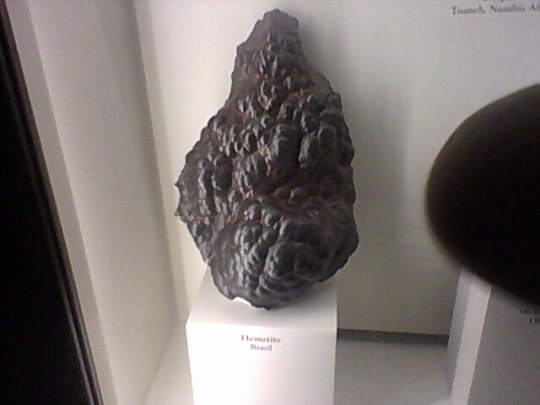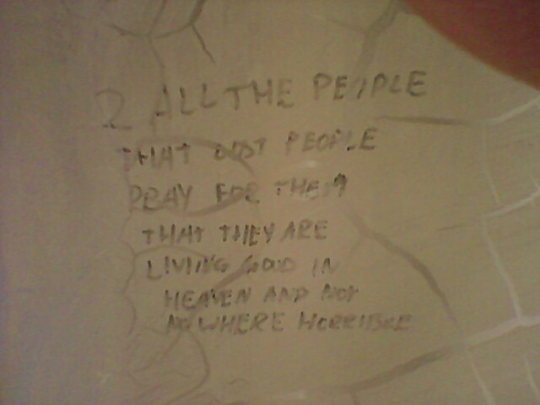Text
A welcome to all my new Forced Feminization followers! Just for clarity this is a page for the musical act forced into femininity and not forced feminization in general but in any case welcome aboard!
7 notes
·
View notes
Link
HEY! If you haven’t seen my campaign, I am planning a much larger scale tour than I have in the past please consider donating!
10 notes
·
View notes
Text
War Whores-Sudden Departure
I wrote this review of this cassette a while ago for a zine centering around transwomen artists that has now become a podcast.(hopefully the first episode will be done soon!) As a result, this essay has become an orphan without the context that would make it whole. But I don't want to discard it because I have put a lot of work into it. One final note, the maker of the cassette requested after I sent them a final draft of the essay that I remove the names of the band she was in as well as the person that the tape centered around. Out of respect for her privacy, I have replaced them with blank spaces:
“WAR WHORES- Sudden Departure”
Just as the genre of noise classically is about taking non-musical and heterogeneous elements and forcing us to listen to them as art. Clarissa Hennessy takes calling someone out and remakes it into nonsense poetry. While calling someone out relies on community's morals being outraged, this tape questions the assumptions these morals spring from.
In a difficult and histrionic format, Hennessy shows herself to be a gifted improviser. The monologue sustains our attention, without slipping into dull incoherence. The tape works because Hennessy spins her tale in and out of verbal control into an area of frightening dadaism which still maintains coherence as a meditation on the discourse created by and surrounding the female survivor of abuse.
Consider a specifically masculine fear of feminine laughter, laughter which seems on the verge of hysteria. The masculine discourse favors a solemnity that represses knowledge which is intuitive and sometimes irrational. So what is repressed breaks out in horror, anger and humor. The feminine other recognizes solemnity as a form of male aggression, an aggression which silences the female voice. Laughter is a tool of the silenced for defending against this aggression.
On the WAR WHORES cassette, Clarissa Hennessy uses both humor and horror in a subversive way. While satirizing call-out culture, she also makes herself into a figure of horror, the wronged woman driven to madness by the betrayal of her male collaborators. Hennessy uses her hysteria selectively as a weapon which terrifies and forces into retreat the person who wants to return her to subjugation with his more reasoned discourse. Hennessy paints herself as the wronged woman traumatized in ways which are more metaphysical than corporeal. Underlying her accusations is a prickly irony which uses her escalating wrath to send up a self-serving culture of consent and non-violent communication. It utilizes the theater of accusation just as it calls into question the assumptions needed for it to function.
The covert fraternity of male oppression can be resisted from within, but reformers will likely be ostracized, mocked or patronized. For women and queer people, resistance is often mounted froma site outside, the theater of accusation. The bonds of masculinity allow for a lack of communication that allows for abuse to continue. The theater of accusation destabilize masculine covert kinship patterns and get to the truth of abuse by insisting it be talked of openly. But in these extreme situations, the community is silent in fear of confronting it's own actions and also simply being in the wrong.
The silence and fear around rape and abuse make it impossible for people to talk about what has happened openly. People, afraid of putting a wrong foot forward, don't confront their real and embarrassing feelings on the situation. Our fear of dealing with sexuality as well as the dubious way language is used in radical communities contribute to this fear of speech. These hesitancies are not there to aid the survivor but for the community to stay comfortable, to avoid a direct confrontation with the unsettling. The community's relegation of these issues below their consciousness is damaging to the survivor because when people's resentments are repressed, they often come out in alarming ways. Many times the survivor who spoke out finds herself shunned as much as the person accused.
Inside the male gaze, the theater of accusation is suspicious, frightening, for there masculine power is stripped of the cloak of fraternity.But this power defends itself by caricaturing the process, viewing it as hysterical and irrational. Feminine power is repressed, relegated to the irrational, but it's power remains. What is repressed grows stronger, it feeds on the energy used to repress it. It is this power of the irrational, the repressed that Hennessy uses to destroy the corrosive male power of common sense. By operating outside of phallocentric forms of logic , she defuses masculine pretense into hysterical laughter.
The tape opens with Hennessy in the persona of the drunk girl, her voice slurred and collapsing into giggles; “I need my phone so I can put on my makeup, where's my hair tie? I need my phone so I can iron my hair tie.” The mood quickly darkens with a sort of eerie child's complaint of abuse: “ I don't think God likes me if your saying these things...”
With a mysterious change of topic common to very drunk, the air of complaint focuses on the person of _______ where it will mostly stay for most of the tape: “Somehow, it's ________ fault for making me think about him right now...” The tape seems to be self-edited while recording, abrupt cuts move us through the circular nature of the litany of accusations against _______ and highlight the repetitive hatred of Hennessy's obsession.
Her obsessive thoughts fit into the role she has plays as the wronged woman, a trope of the patriarchy. The victimized discarded woman is pitied. But the pity functions as a defense from the figure of fear we make of her. To label someone a victim is to put a block on our empathy, to make us forget the times we have been victimized or in the same position. It also reduces the full scope of their humanity, by infantilizing them into a martyr, their own ability to defend themselves and even to cause harm to others is forgotten. This is not only a disservice to the survivor but to the way our community heals itself
Hennessy burlesques this infantilizing tradition in a track called “Non-Constructive Therapy”. In a semi-improvised sketch, Hennessy acts out going to a sleazy counselor/seducer “because I really need some support”. Hennessy shows the counselor the ropes by feeding them the lines she would like to hear and the counselor responds obediently. This sketch shows how the survivor also creates their own status as victim in order for their experience to be comprehensible.
The wronged woman's anger and heartbreak at her betrayal is seen as insane, irrational and dangerous. The danger is of her exposing the fraud of equality in binarily gendered relations. She is tarred with the same brush as her ex-partner. She is at the basic level, feared,then pitied or laughed at. Hennessy is more than willing to take on the abjection of this role, to become the “crazy bitch” scoffed at in secrecy. She removes the polite fiction of pity and openly embodies the horror patriarchal society views her with.
.
“________ is the most patriarchal band because it's based on a patriarchal division of labor. He's like my artistic landlord, He's like the ringleader and I'm the circus freak”
The circus freak is the queer performer, the person whose difference functions as a “muse”. She allows her straight collaborator to express his difference, his femininity without risking the humiliation which she enacts. He derives all the benefits of being viewed as an other without facing any of the challenges it entails. And in this unequal sort of collaboration,he further hedges his bets by controlling what she is able to express. He makes certain that she remains an other, one who cannot speak to the obvious differences between them. There is no threat that his creation will demand he renounce the unquestioned privileges of masculinity.
“I was talking about how ___________ is bad because he made me record the tape. I don't even record, I don't even record, It's the males who record! I wouldn't be recording if it weren't for ____making me do it. I don't even care otherwise but now because of ____, I'm recording onto a tape. I wouldn't even be recording otherwise because I have my fucking life to live”
This is the frustration of the feminine artist mentored and restricted by being introduced to the medium by the person who controls what she produces. To break out from his control could lead to her abandoning art-making permanently. The struggle is for her to continue making art in her own voice.
Then the arena broadens into the public theatre of accusation as Hennessy levels the charges against her collaborator in the final _______ performance. At first, we hear ____ and Hennessy bantering in a light bitchy way;
Hennessy:“You were saying that I disowned you but I don't remember that happening...”
______: “_____ and I have put out 25 albums and gone on three tours and slept in the same bed twice and then to go to; we've only played three shows in the last two and a half years.
H: “ We've slept in the same bed twice, how did you never try and fuck me?”
_:There was one night in Brattleboro,in jolly old Brattleboro, I kind of felt like it a little bit, But I realized it wasn't in the cards. I view you more like a sister”
But the bantering tone, abruptly changes as Hennessy starts hectoring _____ in more of a performative way:
“We've put out 25 albums,we've been on six tours of the U.S. We've been together for eight years. There are people who don't know about our working relationship and how exploitative it is, they might view it is a partner, like a white stripes kind of thing. We've basically been married for eight years and I don't even get the dignity of being fucked by you.”
Part of the humor of this line comes from the idea of being fucked providing a sort of respectability as opposed to the non-respectable way we view sex. But it also relates deeply to a frustration of transwomen not solely sexual. While in queer communities , transwomen find themselves cast as “muse” to inspire others in their quest of sexual liberation. But this liberation does not provide transwomen a way to express their sexuality, it is strictly for everyone except the “muse”. In both queer and straight cultures, the transwoman is not seen as a potential sexual partner just as there is a lack of seeing of her as fully human. The dignity of being fucked, the dignity of personhood belongs to those whose gender is legible.
But from this perhaps still comic tone, the accusations double to the metaphysical. Hennessy starts by singing over a tape-recorded musical accompaniment. Her persona starts as a crooning lounge singer and gradually builds to a shrieking nightmare:
“ I need you,_______, To have sex with my dead body. I bet you don't want to have to have sex with my dead body but you have to now because you already know what's on this tape, but now you're listening to it and I'm dead, ____! You've listened to it a bunch of times already, now you know you have to do it! You have to do the things you already knew you were going to do!”
Now the accusations spiral out of control focusing not only on ______'s past actions but what he will do in the future. When calling someone out in a punitive way, it can seem as if a person who has done wrong in the past is incapable of changing or maturing from their actions. These expectations limit the person's ability to move forward from the pain they have caused. Hennessy's accusations center on what hasn't happened yet and function as a curse, binding _______ to actions he must now commit.
As listeners, we have identified with Hennessy's narrative as the abused woman, even as the narrative begins to fray. But she is not willing to leave the narrative there, and as the tape goes on, it begins to interrogate itself.
The second side opens with an earlier Cave Bears performance entitled “Genealogy of Aesthetics” which calls into question the strong appeal to our morals on the first side. Here _______ and Hennessy aggressively interrogate an increasingly hostile audience pointing at symbols and asking “ Good or Bad?” These symbols include obvious ones such as anarchy signs as well as less meaningful ones such as a circle and a square. Williams announces “We're playing two games here, one's called 'Good or Bad' the other's what is this?”
What is this? _______ is a my shitty boyfriend. It creates the category of male which _______ will be slotted into. Good or bad, “does he like to get his dick sucked. Probably, because he's a man and men are bad.” It labels him as bad, this discourse labels him as bad and therefore not worthy of inclusion in our empathy. It labels him as against our particular morality. But the placement of this track here on the cassette calls into question all that had proceeded it. Hennessy and _____ show us how easy it is to manipulate people's judgments based on perceived good or evil of what is being referred to.
By leveling more and more charges against ______, Hennessy shows us how easily as humans we can be manipulated into believing the worst about someone. No matter how absurd the charges against someone, they leave a mark behind maybe in just an uneasiness in relating to that person. Haven't we been listening to a game of “good or bad” the whole time we've been listening to this cassette?
The tape ends on aptly nihilistic note with the sounds of her corpse being defiled amid sounds of a crackling fire. One thinks of brilliantly crude drawing on the cover of _______ fucking the dead body of Hennessy, as well as the gruesome photo that shows her lying naked, her belly split open. Hennessy is a authentic contrarian who mocks the sensibilities we expect to be congratulated for.
5 notes
·
View notes
Link
I’m a part of this group, it’s attempting to radically change the culture of mutual negligence that has unfortunately been part of the d.i.y. scene. So if you live in Chicago or know someone who’d like to help, come or invite them to this training
2 notes
·
View notes
Link
playing at this in under two weeks!
1 note
·
View note
Link
One of the best bands I’ve been in and the primary reason I had to stop playing rock until I found Gula-Gila
10 notes
·
View notes
Photo
I like dental pain

Action Comics #434, April 1974, cover by Nick Cardy
260 notes
·
View notes
Text
?
Ask me things, I'm a middle aged advice columnist
2 notes
·
View notes
Photo



highlights from the Lapidary arts museum in Elmhurst, IL
0 notes
Text
Advice for Performers from a Dented Ham
When I first began performing live, I was continually frustrated by how playing venues rarely lived up to my expectations for my own work. So when people would approach me afterwards and compliment me on my performance, I would say something self deprecating: " No, I was really off tonight." or "we sucked tonight.".
My well-wisher's eyes would automatically glaze over like someone being told something uncomfortable after giving an impersonal greeting: "How are you?" "Awful, having a psychotic episode right now..."
It's been said that every critic robs us of the pleasure we get from a work of art by pointing out the flaws within. Unconsciously, I was acting as that critic by destroying the joy that people were getting from my work.
But in my case, it had to do with the knowledge I have of my own work and my expectations as to how it should sound. As artists, we have a vision as to how our work should come across. Classically, it would have been said that the success of our work has to do with how we communicate this vision to our audience. One of the things, postmodernity has done is to complicate this notion of how important artist's intention actually is. We are starting to see how even "succesful" works can have many degrees of meaning and ideas not intended by the artist.
In this way often expressing our dissatisfaction has to do with attempting to reinforce our control over our work of art. We dislike the unintentional content of our work, the part that exposes our human frailty. But once the work is out there it mutates from our own creation to what our audience brings to it as well.
This is why we have to embrace the arbitrary failures and limitations that live performance brings to our work, ultimately it makes the work richer and more human than the romantic vision we have of our own work. Sequestered in our studios or rehearsal space, we have created a vision of what we are trying to communicate to an audience but this doesn't mean that we have to reject the vision that the audience brings to our work.
13 notes
·
View notes
Photo


more photos of Forced into Femininity at Pith House by Monika Wizgird
9 notes
·
View notes
Photo


alternate states of consciousness are hard to get in the midwestern wintertime
1 note
·
View note



